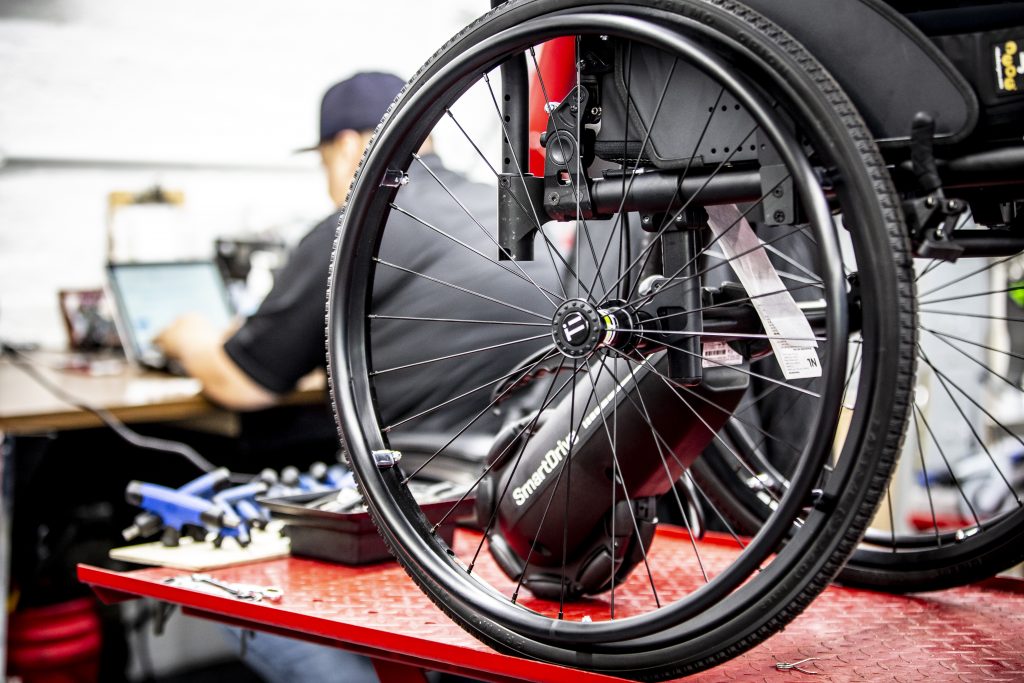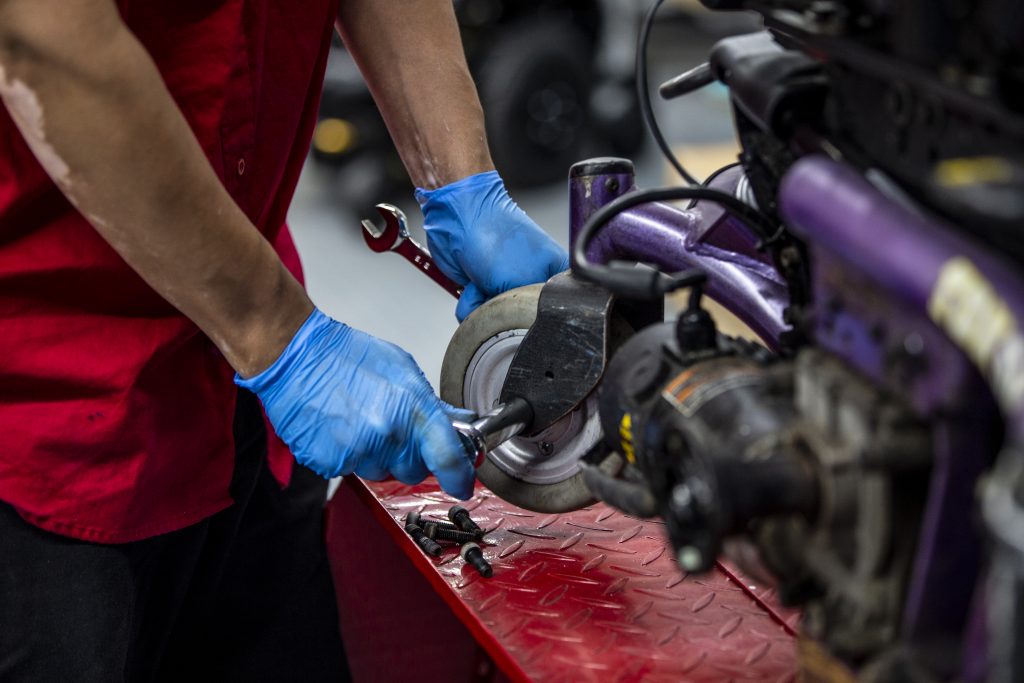Right-to-Repair
What it Means for You
By Alaina Leary
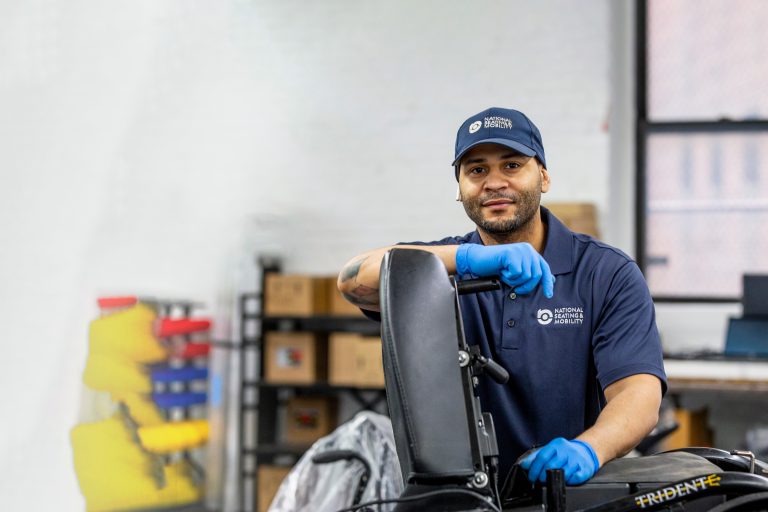
Right-to-repair legislation is being considered in states across the country, aimed at allowing people to repair everything from electronics to tractors themselves without fear of voiding the warranty. Legislation recently passed in Colorado has extended the right-to-repair to include mobility equipment such as wheelchairs.

“Recently, we spoke to Dr. Mark Schmeler, occupational therapist and associate professor at the University of Pittsburgh, about the complicated and multilayered issue. Here are a few of his thoughts about the repair and service side of the complex rehab technology (CRT) industry and how insurance providers, suppliers, clinicians and customers
can work together to ensure mobility equipment lasts longer and can be repaired in a timely manner.”
Can you sum up what right- to-repair legislation is and why some states are passing these kinds of laws?
It’s allowing a person, a consumer, to fix their own stuff, and not have to depend on a supplier or a repair shop to do it. It started with the iPhone, actually. People thought they should have the right to fix their own phone.
When it comes to wheelchairs, there’s been a growing issue with equipment failing and needing repairs. Suppliers
need to be attentive to the issue, but repair reimbursement is also a loss-leader for the CRT industry because insurance reimbursements don’t cover the actual labor and parts related to the service. The CRT industry is also experiencing supply chain and labor market issues right now. Wheelchair users don’t have a lot of options when their wheelchair fails. For an able-bodied person, if your car broke down, you could always find an alternative way to get where you need to go whereas if your wheelchair breaks, you’re stuck at home. Wheelchair users are probably looking for a solution, but weren’t getting it, so right-to-repair became an option that would allow consumers to purchase their own parts and replace them themselves versus having to go through an intermediary supplier.
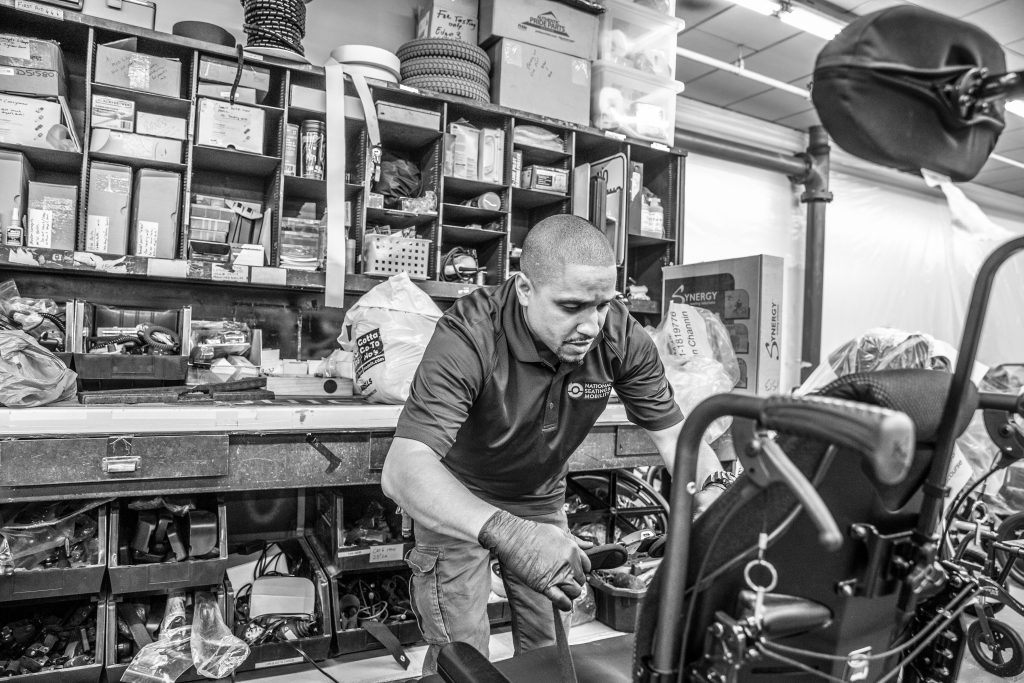
What is missing from how we handle wheelchair and other mobility aid repairs now and what barriers does
this cause for those who use mobility equipment?
I think the one thing missing is maintenance. When Medicare, being the nation’s largest payer of wheelchairs, creates a policy, most of the private insurance companies follow suit. The Medicare policy clearly says that they do not pay for maintenance. It further states in the policy that users themselves are expected to be able to do this maintenance.
For the most part, you can’t put a blanket responsibility on a person with a disability to maintain their wheelchair. I think we need to replace that policy with a policy or benefit that states something to the effect of, “We will pay for a six month check up on your wheelchair.” It’s not forcing people to do it, but rather making that option available to those who choose to do it and who are not in positions where they could do their own maintenance. It would be like your six-month dental checkup or doing regular maintenance on your car—you don’t have to complete these steps to continue your coverage, but the option is there and it will help minimize major issues from arising.
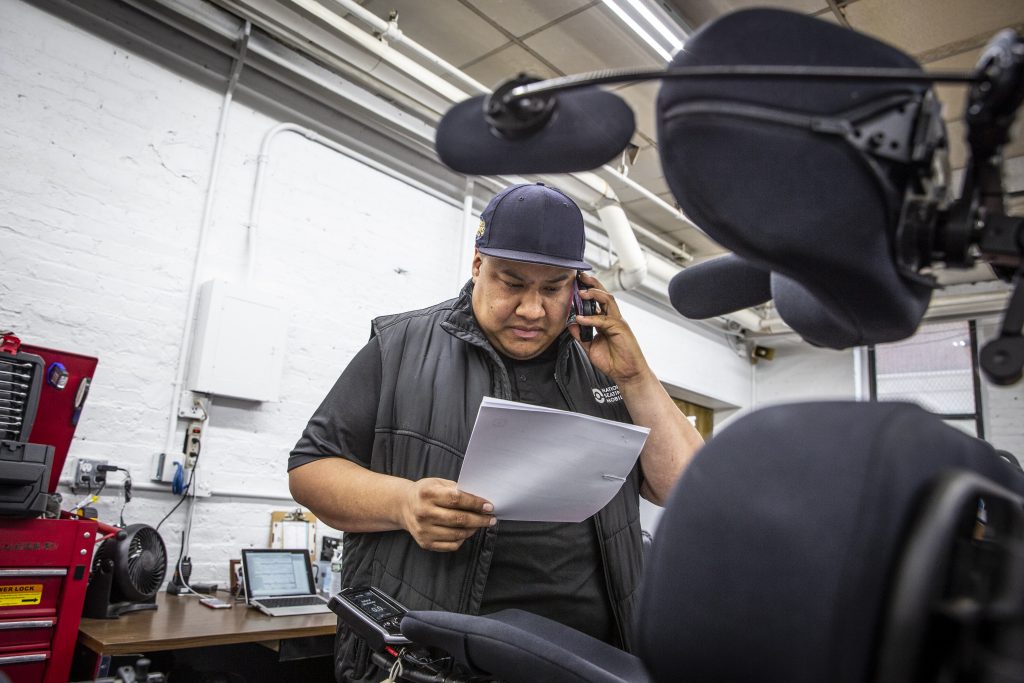
How might right-to-repair legislation change options for wheelchair users and other mobility aid users?
I think if we change policy to include maintenance and repair and make that part of a payment model, maybe more
people will pay attention to it. If we move more toward a pay-for-performance model, you would pay a certain amount of money per year, and your health plan may choose to buy that maintenance coverage for you. When something goes wrong with your wheelchair, they connect you with the first available provider that can fix it. I also see an opportunity for new businesses and new ways of doing business that would mitigate some of these problems, like anticipating
issues and taking care of them before a massive failure. Fundamentally, we have to all agree: payer, supplier, clinician,
consumer. Chairs are not designed to never fail. They’re going to fail, but with regular preventive maintenance, like on your car, we can help prevent catastrophic failure.
Dr. Mark Schmeler is the lead investigator of a research project funded by the National Institute on Disability and Independent Living Rehabilitation Research.
More Stories
Related Articles
Back to School with Confidence
Navigating the Transition from Summer to School for CRT Users It’s back-to-school season, and the transition from a relaxed summer schedule to the more structured…
CRT Repair: Resolution, Repair & the Heart of the Matter
The Mobility Management podcast interview sheds light on the multifaceted challenges and urgent need for reforms in the repair and maintenance of Complex Rehab Technology…
Tips for Traveling with Your Wheelchair
Planning an upcoming trip? Perkowski, Morris and Lengel all suggested a few steps you can take to protect your wheelchair while flying. To learn more…

